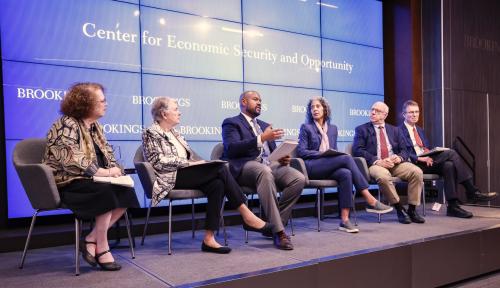We have known for some time that children who grow up in single parent-families do not fare as well as those with two parents – especially two biological parents. In recent years, some scholars have argued that the consequences are especially serious for boys. Not only do boys need fathers, presumably to learn how to become men and how to control their often unruly temperaments, but less obviously, and almost counterintuitively, it turns out that boys are more sensitive or less resilient than girls. Parenting seems to affect the development of boys more than it affects the development of girls. Specifically, their home environment is more likely to affect behavior and performance in school.
Up until now, these speculations have been based on limited evidence. But new research from Harvard professor Raj Chetty and a team of colleagues shows that the effects of single parenthood are indeed real for all boys, regardless of family income, but especially for boys living in high-poverty, largely minority neighborhoods.
When they become adults, boys from low-income, single-parent families are less likely to work, to earn a decent income, and to go to college: not just in absolute terms, but compared to their sisters or other girls who grew up in similar circumstances. These effects are largest when the families live in metropolitan areas (commuting zones) with a high fraction of black residents, high levels of racial and income segregation, and lots of single-parent families. In short, it is not just the boy’s own family situation that matters but also the kind of neighborhood he grows up in. Exposure to high rates of crime, and other potentially toxic peer influences without the constraining influence of adult males within these families, seems to set these boys on a very different course than other boys and, perhaps more surprisingly, on a different course from their sisters.
The focus of a great deal of attention recently has been on police practices in low-income minority neighborhoods. Without in any way excusing police brutality where it has occurred, what this research suggests is that the challenge for police is heightened by the absence of male authority figures in low-income black neighborhoods. In his gripping account of his own coming of age in West Baltimore, journalist Ta-Nehisi Coates recounts being severely punished by his father for some adolescent infraction. When his mother protested, Ta-Nehisi’s father replied that it was better that this discipline come from within the family than be left to the police. But Coates’ family was one of the few in his neighborhood where a father still existed.
Repairing families is difficult at best. Most single-parent families are initially formed as the result of an unplanned birth to an unmarried young woman in these same communities. Perhaps girls and young women simply suffer in a different way. Instead of becoming involved in crime and ending up in prison or the informal economy, they are more likely to drift into early motherhood. With family responsibilities at an early age, and less welfare assistance than in the past, they are also more likely to have to work. But in the longer run, providing more education and a different future for these young women may actually be just as important as helping their brothers if we don’t want to perpetuate the father absence that caused these problems in the first place. They are going to need both the motivation (access to education and decent jobs) and the means (access to better forms of contraception) if we are to achieve this goal.
Editor’s note: This piece originally appeared in Real Clear Markets.


Commentary
Op-edBoys need fathers, but don’t forget about the girls
February 9, 2016